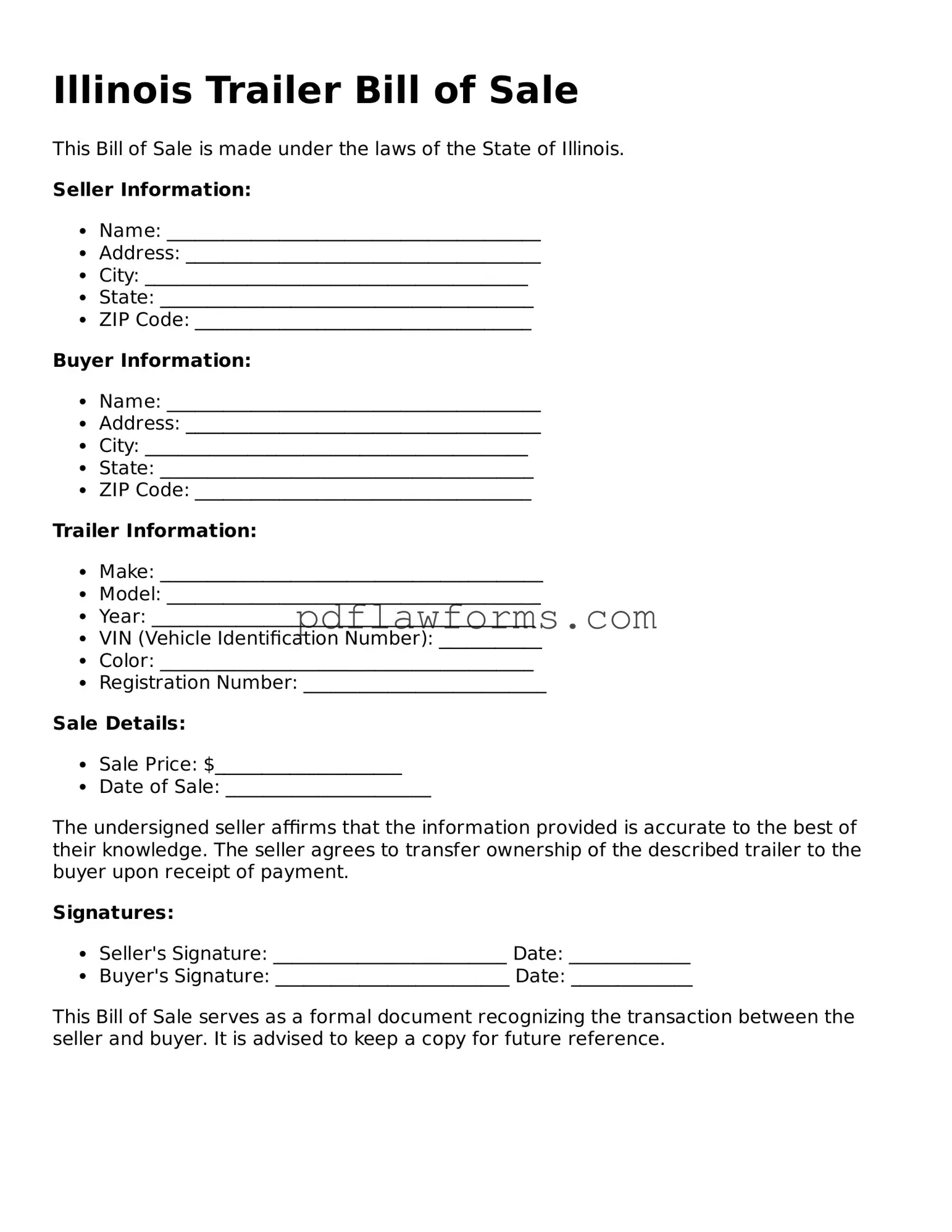Filling out the Illinois Trailer Bill of Sale form can be straightforward, but many people make common mistakes that can lead to complications later on. One frequent error is not providing complete information about the trailer. It's essential to include details such as the make, model, year, and Vehicle Identification Number (VIN). Omitting any of these details can create confusion and may even invalidate the sale.
Another mistake often seen is failing to include the sale price. The form requires a clear statement of the amount for which the trailer is being sold. Without this information, the transaction may not be legally recognized, and both parties could face challenges in proving ownership.
Some individuals overlook the importance of both parties signing the document. The seller and buyer must sign the form to confirm their agreement to the sale. If one party neglects to sign, it could lead to disputes or issues with registration later on.
Additionally, people sometimes forget to date the bill of sale. Including the date is crucial as it marks the official transfer of ownership. Without a date, it may be difficult to establish when the transaction occurred, potentially complicating future legal matters.
Providing incorrect or outdated contact information is another common pitfall. Both the seller and buyer should ensure their names, addresses, and phone numbers are accurate and current. This information is vital for any future correspondence or if issues arise after the sale.
Some buyers and sellers neglect to check for any liens or outstanding loans on the trailer before completing the sale. If a lien exists, it must be resolved before the transfer can be legally completed. Failing to address this could leave the buyer responsible for debts associated with the trailer.
Another mistake involves not keeping a copy of the completed bill of sale. After signing, both parties should retain a copy for their records. This document serves as proof of the transaction and can be helpful if any disputes arise in the future.
People often misinterpret the purpose of the bill of sale. It is not just a receipt; it is a legal document that provides evidence of ownership transfer. Understanding this can help both parties take the process seriously and ensure all necessary information is included.
Lastly, some individuals may not realize that the bill of sale needs to be submitted along with other documents when registering the trailer. It's important to check with the Illinois Secretary of State's office for specific requirements to avoid any delays in registration.

